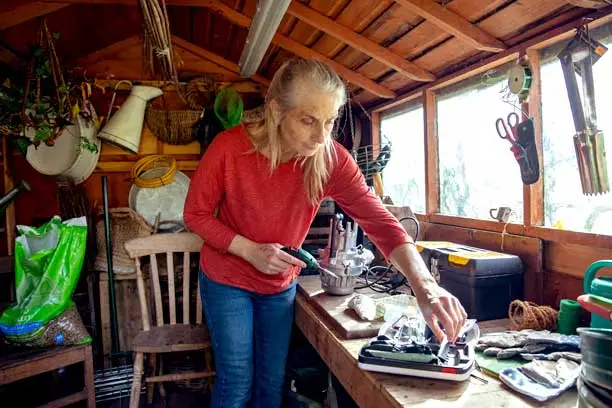What Is Not Covered by Homeowners Insurance?


Getting a homeowners insurance policy is a smart move, no matter what kind of house you own. But many people think that their basic homeowners insurance policy will pay for any type of damage that happens to their home and the property inside it. Unfortunately, that’s not always the case. Knowing what is included in your homeowners insurance can help you plan for the unexpected and protect your family — whether by saving money or adding coverage to your policy.
So, what does homeowners insurance not cover? These eight surprising things may require added coverage on your policy. And since your home is one of your biggest investments, it might be worth it.
Mold can present major health risks to you and your family. But many standard homeowners insurance policies limit coverage for mold damage — or exclude it altogether. Eradicating mold and protecting against it can be costly, but it’s important.
Of course, your best defense against mold is to prevent it from growing in the first place. Checking regularly for leaks, cleaning up any moisture, using a dehumidifier and performing routine maintenance on your home can go a long way toward protecting against mold. But even precautions can’t guarantee you’ll avoid growth. If you’re concerned about the mold risk in your home, talk to your Farm Bureau agent about additional homeowners coverage for fungi.
Sewer or water backup is never fun — whether it’s a pipeline that handles raw sewage becoming overwhelmed in a storm or a line getting blocked due to tree roots. You can install a sewer backflow valve or a sump pump to help you stay ahead of a potential mess, but it’s also wise to consider adding sewer backup coverage to your policy. Although we can’t help you avoid the damage, we can help you minimize the expenses that come from it — by protecting your floors, furniture and more.
Do you manage your real estate clients from your home office? Do you run an in-home daycare? Are you a freelance graphic designer working at your kitchen table? If you run a business out of your home, there is a chance that your standard homeowners policy will not cover a claim if your inventory catches fire, or if a customer slips and falls on your icy front stoop. Protect your home-based business by talking to your Farm Bureau agent about additional coverage or endorsements to your policy.
When you think of homeowners insurance coverage, you probably think of everything in and around your property. That’s a common mistake, and one that could prove to be costly. Detached buildings or structures on your property such as garages, sheds, casitas, treehouses or outbuildings are a few of the items that may not be covered or may not have sufficient coverage. Check with your agent to see if acquiring additional property coverage is a smart move, especially if you have recently added a new detached structure on your property.
Termite colonies — from a few hundred to several million — can devastate the structural integrity of your home, causing costly damage. Their ability to go undetected for years means it’s difficult to get ahead of the damage. You can lower your risk by keeping wood mulch dead plants or wood away from the soil near your house. Make sure crawl spaces are ventilated and foundations are dry to prevent termites from getting water. And because termite damage is rarely covered under homeowners insurance policies, arrange to have a licensed pest control company inspect and treat your home on a regular basis.
Scheduled Personal Property insurance protects your most valuable items, such as jewelry, fine art and other rare collectibles. Although you may have coverage for these belongings under your standard homeowner policy, limitations may apply, especially to higher-value items. Talk with your agent about adding scheduled personal property coverage for your more valuable personal items.
Your dog is your family’s faithful companion, and it lives in your home — and damage or injury to others caused by some dogs may be covered by your policy. Depending on state regulations in the state where you live, the breed of your dog may affect your homeowner’s liability insurance. However, some breeds, like Dobermans, Pitbulls, Rottweilers and Chow Chows may not be covered or may be excluded if they cause injury or damage to others. And if your dog causes damage or injury to others, your premium might increase, or your dog might be excluded altogether in the future. Talk to your agent about your dog to make sure you’re protected.
Though your policy likely covers some damage caused by nature, standard homeowners insurance doesn’t typically cover earthquake damage. Earthquake coverage can be added to the policy for an additional premium, though, so talk to your agent about adding this coverage.
If you have homeowners insurance, you may think it covers most of your property for damage from a flood, but floods are not usually covered under these insurance policies. It’s important to check your policy or ask your agent if you are covered for flooding. Flood coverage can be purchased as a separate policy, and if you believe you are at risk, an agent can help protect you.
Peace of mind is worth the added expense when it comes to protecting your most important investments. Schedule a SuperCheck with your Farm Bureau agent today to talk through any gaps in your current homeowner’s insurance coverage.